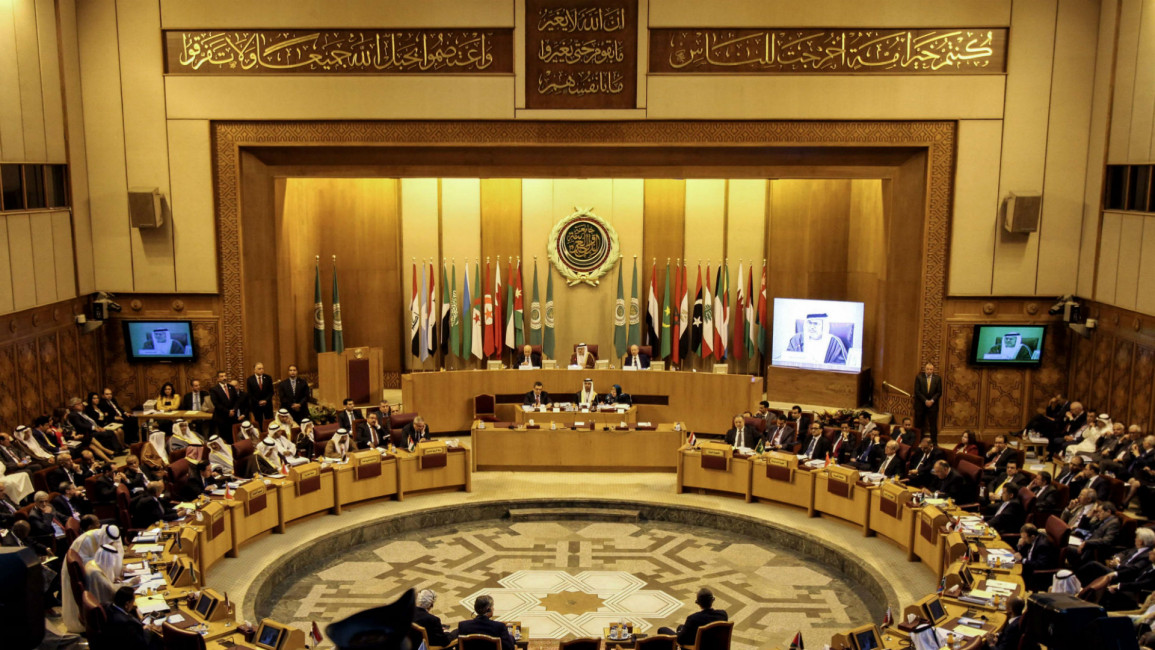Arab League voices 'deep concern' at US Muslim-country ban
Arab League voices 'deep concern' at US Muslim-country ban
The Arab League have deemed Trump's immigration ban "unjustified restrictions".
1 min read
Travellers from six Arab states have been banned from the US [Getty]
The head of the Arab League expressed "deep concern" on Sunday about President Donald Trump's restrictions on citizens of seven Muslim-majority countries entering the United States.
The new regulations "are unjustified restrictions on the entry of citizens of several Arab nations to the US, in addition to the consequences of suspending the acceptance of Syrian refugees," Ahmed Aboul Gheit said in a statement.
Trump on Friday signed a sweeping executive order to suspend refugee arrivals and impose tough controls on travellers from Iran, Iraq, Libya, Somalia, Sudan, Syria and Yemen.
Aboul Gheit said he hoped the US administration would "review its position because of the negative consequences this could lead to in terms of preserving family unity and the continuation of dialogue between Arab societies and American society".
Such dialogue includes "the fields of education and scientific research", his statement said.
Aboul Gheit's spokesman Mahmoud Afifi was also quoted in the statement as expressing concern about "indications of a direction towards using an official religious standard to identify whether or not to accept refugees".
The new regulations "are unjustified restrictions on the entry of citizens of several Arab nations to the US, in addition to the consequences of suspending the acceptance of Syrian refugees," Ahmed Aboul Gheit said in a statement.
Trump on Friday signed a sweeping executive order to suspend refugee arrivals and impose tough controls on travellers from Iran, Iraq, Libya, Somalia, Sudan, Syria and Yemen.
Aboul Gheit said he hoped the US administration would "review its position because of the negative consequences this could lead to in terms of preserving family unity and the continuation of dialogue between Arab societies and American society".
Such dialogue includes "the fields of education and scientific research", his statement said.
Aboul Gheit's spokesman Mahmoud Afifi was also quoted in the statement as expressing concern about "indications of a direction towards using an official religious standard to identify whether or not to accept refugees".



